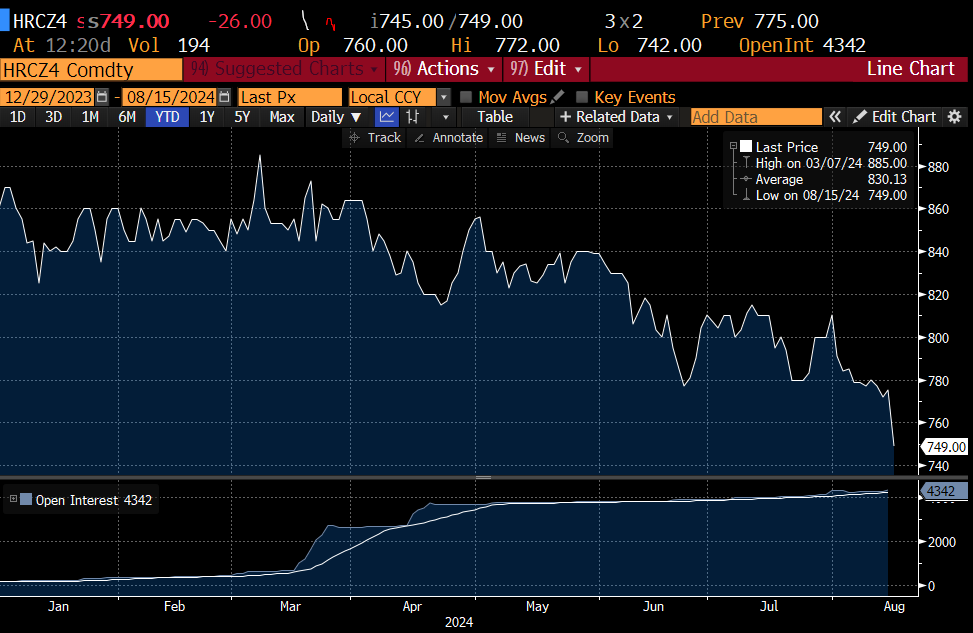Prices

August 15, 2024
HR futures: Lack of good news leads futures lower
Written by Mark Novakovich
The front end of CME hot-rolled (HR) coil steel futures contracts had drifted lower when this article was filed on Thursday afternoon. And the back end of 2024 had also come under pressure.
Despite staging a late-month rally at the end of July back into the low $700s per short ton (st) range, the lead August HRC contract once again finds itself near YTD lows around $660/st at the time of writing. The December contract has shed nearly $60/st since the beginning of the month.
HR falters
The futures contango structure continues to roll forward, with an approximately $90/st spread between August and December contracts. Limited positive data and bearish headlines have weighed on the futures complex.

The seasonal doldrums seem to be in effect in paper markets during the late summer, as daily contract volumes struggled to break past 30,000 st on any given day. And several days in the first part of August saw less than 16,000 st traded. Open interest has declined from levels seen in July, with 436,000 st open as of Wednesday’s close, down from 520,000 st at the end of July.
A sideways CRU print at $658/st for the pricing period has failed to inspire broader confidence in futures values. The global macro picture also remains precarious, as industrial indicators such copper and iron ore prices have moved down well off their Q2 highs. And various reports this week of Chinese mill Baowu warning of faltering demand in China and overseas further dampened sentiment.
US commercial participants in futures have described a mixed bag. Some say they are seeing an increase in demand inquires for physical tons. Others have said demand remains soft and hardly enough to justify a sustainable bounce in values. Commercial players with exposure to the auto sector have noted the effects from a decline in motor vehicle production.
BUS open interest dries up
The CME busheling scrap contract (BUS) is steady to softer. The lead September BUS contract is essentially flat on the month at $410 per gross ton (gt). The December contract is down intramonth approximately $10/gt at $425/gt.
Nonetheless, open interest in the BUS contract continues to decline and now sits at only 40,000 gt across all contract months. That comes amid ongoing industry debate about the accuracy of the underlying assessment, which has kept fresh interest sidelined.






